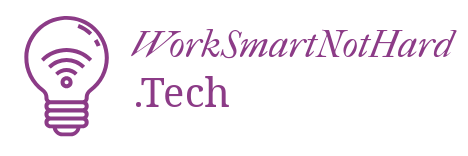In today’s fast-paced tech world, managing finances can be a real challenge. Thankfully, automation tools can make this job much easier. These tools help businesses save time, reduce errors, and focus on what really matters—growing the business. Here, we’ll explore the top five tools that can help you automate your tech business finances and stay ahead of the competition.
Key Takeaways
- Automation tools save time by handling repetitive financial tasks.
- They help reduce errors and improve the accuracy of financial data.
- These tools offer better compliance and security for financial processes.
- They provide real-time insights into your financial health.
- Using automation tools can make your business more competitive and efficient.
NetSuite
NetSuite is a cloud-based platform offering a comprehensive suite of business management tools. Its integrated approach covers various functionalities, making it a versatile choice for many businesses.
Key Features:
- Handles accounting, invoicing, and financial planning
- Manages customer interactions and sales processes
- Provides insights through analytics and reporting capabilities
- Customizable invoicing for specific business needs
- Suits businesses of different sizes
- Third-party integration for better workflow
- Robust data security protocols
NetSuite is ideal for growing businesses looking for an all-in-one solution. It helps you work smart, not hard by automating many financial tasks, reducing errors, and ensuring consistency. This allows your team to focus on more important work while the system handles routine tasks.
NetSuite’s real-time visibility into financial data ensures that decisions are always up-to-date, helping businesses stay competitive in today’s fast-paced market.
Xero

Xero is rapidly gaining traction among accountants and small businesses thanks to its user-friendly interface and out-of-the-box functionality. Even non-accountants can easily navigate and understand Xero’s features, making it an accessible solution.
The cloud-based platform effortlessly pulls data directly from banks, eliminating the hassle of manual bookkeeping. Financial advisors and non-accountants can gain immediate access to critical data, staying informed and empowered. Xero’s seamless integration with various business systems, including CRMs and e-commerce platforms, further enhances its versatility.
QuickBooks

QuickBooks is a popular friend to many small companies. It helps with making invoices, keeping track of what you buy, and paying your workers. It’s not just a calculator; it gives you hints about how you could do better in the future. Plus, it plays well with other programs you might already have, making your data work together neatly.
Key Features
- Comprehensive financial tracking and reporting
- Real-time overview of business operations
- Automatic billing
- Compliance management
- Easy transfer of information in and out of the system
- Monitoring and management of expenses
- Handling employee payroll
- Managing and tracking sales tax obligations
- Third-party integrations
Benefits
QuickBooks is designed to save you time and fuel your growth by automating tasks, streamlining workflows, and giving you access to data. This makes it easier to manage your finances and focus on growing your business.
Integration
QuickBooks integrates seamlessly with other software, allowing you to import data from Excel spreadsheets and other sources. This ensures that all your financial information is in one place, making it easier to manage and analyze.
User Experience
QuickBooks is user-friendly and easy to navigate, making it a great choice for small businesses and freelancers. The software provides real-time insights into your cash flow, helping you make informed decisions about your business.
QuickBooks is a go-to solution for freelancers, small businesses, and mid-size enterprises looking to streamline their accounting, payroll, and payment processes. By automating accounting tasks, QuickBooks simplifies tax management, enables seamless invoicing and tracking, and provides real-time insights into your cash flow.
BlackLine
BlackLine is a robust tool designed to streamline financial close and reconciliation processes. It automates the checking of invoices and the completion of financial reports, significantly reducing errors and ensuring compliance with regulations. You can monitor the entire process in real-time, making it easier to identify and resolve issues quickly.
Key Features
- Continuous Accounting: BlackLine allows for continuous monitoring and updating of financial data, ensuring that your books are always up-to-date.
- Automated Reconciliation: The software automates the reconciliation of accounts, reducing the time and effort required for this tedious task.
- Real-Time Visibility: With BlackLine, you can see the status of your financial processes at any time, making it easier to manage and correct discrepancies.
- Compliance and Control: The tool helps you adhere to financial regulations and internal controls, minimizing the risk of fraud.
BlackLine makes financial management simpler and more accurate, freeing up time and reducing the likelihood of mistakes.
SolveXia

SolveXia is a powerful tool designed to automate business processes in the financial sector. It offers a range of features that can help streamline your operations and improve efficiency.
Key Benefits
- Connect All Your Data: SolveXia integrates seamlessly with your existing systems, ensuring all your data is connected and accessible.
- Transform Your Work: By automating repetitive tasks, SolveXia allows your team to focus on more strategic activities.
- Advanced Analytics: Gain deeper insights into your financial data with SolveXia’s advanced analytics capabilities.
- Governance and Audit Trails: Maintain compliance and ensure transparency with robust governance and audit trails.
Solutions Offered
SolveXia provides a variety of solutions tailored to different business needs:
- Financial Automation: Automate data preparation, reporting, and analytics to save time and reduce errors.
- Reconciliation: Streamline your reconciliation processes to ensure accuracy and efficiency.
- Rebate Management: Manage complex rebate processes with ease.
- Regulatory Reporting: Stay compliant with regulatory requirements through automated reporting.
- Expense & Payment Management: Simplify expense tracking and payment processes.
- Revenue Management: Optimize your revenue management strategies.
- Process Optimization Software: Continuously improve your business processes for better performance.
Industry Applications
SolveXia is versatile and can be applied across various industries, including:
- Financial Services & Fintech
- Retail & FMCG
- Travel
- Health and Medtech
SolveXia’s ability to automate business processes makes it an invaluable tool for any tech business looking to enhance its financial operations. Whether you’re in finance, retail, or healthcare, SolveXia can help you achieve greater efficiency and accuracy.
Conclusion
In today’s fast-paced digital world, automating your business finances is no longer just an option—it’s a necessity. The tools we’ve discussed, from NetSuite to QuickBooks, offer a range of solutions to fit businesses of all sizes. By adopting these tools, you can save time, reduce errors, and gain valuable insights into your financial health. This allows your team to focus on strategic initiatives that drive growth and success. Embracing finance automation not only streamlines operations but also positions your business at the forefront of innovation. So, take the leap and transform your financial processes today for a more efficient and prosperous tomorrow.
Frequently Asked Questions
What are finance automation tools?
Finance automation tools are software solutions that help businesses handle financial tasks automatically. They can take over jobs like bookkeeping, invoicing, and payroll, making these processes faster and more accurate.
How do finance automation tools benefit businesses?
These tools save time, reduce errors, and help businesses follow rules better. By automating tasks, companies can focus on more important projects that help them grow.
Can small businesses use finance automation tools?
Yes, small businesses can use these tools. There are many options designed specifically for smaller companies that are easy to use and affordable.
What is NetSuite?
NetSuite is a cloud-based system that helps businesses manage their finances. It offers features like accounting, inventory tracking, and real-time financial data, making it easier for growing companies to keep their books in order.
How does Xero help small businesses?
Xero is a user-friendly accounting tool for small businesses. It handles tasks like invoicing, payroll, and bank reconciliation, saving time and reducing the need for manual data entry.
What makes QuickBooks popular?
QuickBooks is popular because it is easy to use and helps businesses with tasks like accounting, payroll, and invoicing. It provides real-time insights into cash flow, making financial management simpler.
What does BlackLine do?
BlackLine is a tool focused on financial close and reconciliation. It helps businesses automate accounts receivable, reconcile accounts, and generate management reports, improving accuracy and reducing fraud risk.
Why is it important to adopt finance automation tools?
Adopting these tools is important because they make financial operations smoother and less prone to errors. They free up teams to work on strategic projects, helping businesses stay competitive in the digital age.

